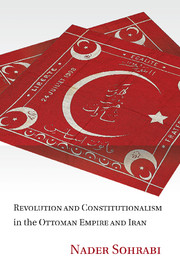6 - Reform and Patrimonialism in Comparative Perspective
from Iran
Published online by Cambridge University Press: 05 November 2011
Summary
When making the transition from the Ottoman Empire to Iran, what is immediately striking is the comparatively low level of institutional development. Iran faced strong geopolitical pressures, similar to those faced by the Ottoman Empire, that came from Russia and Britain, especially. Like its neighbor’s, Iran’s difficulties prompted attempts at self-strengthening through European-inspired reforms. These were usually filtered through the Ottoman experience and transmitted by major Iranian reformers who could claim familiarity with its reformist undertakings after an elongated period of stay in the Ottoman domains. Yet the reform era did not result in centralization, a modern bureaucracy, or an independent executive comparable with the Sublime Porte. State penetration into society remained meager, leaving the clerical institutional framework intact, largely independent, and with great influence over Iranians’ daily lives. The state, although partially transformed in the nineteenth century, remained for the most part an extension of the shah’s patrimonial household.
It was not surprising then that the educational scene differed greatly. Modern Iranian schools were primarily private initiatives with minimal commitment from the state, moral or financial. Without state sponsorship, Iran did not see the emergence of a modern middle class in the nineteenth century. The graduates that trickled into the bureaucracy were small in number; even fewer entered the army. If the fault line in the centralized Ottoman civil bureaucracy and military ran between those with modern education and the rest, the divisions in the decentralized Iranian bureaucracy and military were factional, regional, and tribal.
- Type
- Chapter
- Information
- Revolution and Constitutionalism in the Ottoman Empire and Iran , pp. 287 - 334Publisher: Cambridge University PressPrint publication year: 2011



